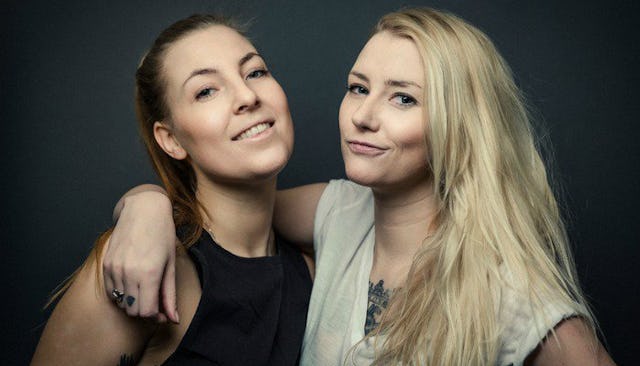6 Reasons Friendships In Your 40s Are Better

Everyone knows that friendships inevitably change over time — your best friend at 6 might not be your best friend at 16. Your closest college bud might fade into the distance by the time the ink on the diploma is dry. But I’ve found that the quality of my friendships has generally improved over time, and at this point in my life, my friendships are the best they’ve ever been. Below, six reasons why friendships in your 40s are better than ever.
1. You’re okay with letting not-so-hot friendships fade away.
Young people are idealistic about relationships, both romantic and otherwise. They believe in true love, best friends forever kind of stuff. When you’re older, you realize that friendships are often time- and location-specific and that that’s okay and even fun — there are more friends to come! The ones that are forever are wonderful, but not every friendship has to be lifelong, and it’s okay to ditch one that’s become more work than fun.
2. You don’t expect everything from everyone.
I spent half my 20s being pissed at one friend for being flaky and unreliable. But she was the funniest person I’ve ever met, so I kept making plans with her, even if she often completely flaked. After 20 years, I’ve stopped being disappointed in her, and in other people who behave in entirely predictable ways. I can enjoy her sense of humor without agreeing to meet her on a street corner at precisely 7:45 ever again. It’s okay if some friendships are lightweight, and you learn to always have a backup plan.
3. The bonds you have with your friends are more concentrated.
To use a cooking metaphor, once you’ve crossed the threshold of 40, friendships are reduced to their essence. When you’re younger, there’s a lot of amorphous, free-form socializing. You might hit a bar where your college friend’s high school friends might be hanging out. But now you have deeper, one-on-one relationships. (Largely because that’s what we have time for!)
4. There’s less drama.
My friendships as a young woman had a lot of Sturm und Drang — miscommunications, sometimes petty exclusions, weird power dynamics. In my 40s my friends are straightforward. We get together because we want to, and we say what we mean.
5. You learn to be friends with the people who show up.
In my adult life, I’ve extended invitations or made friendly overtures to a lot of people over the years. When I was younger, if someone would decline or ignore, I’d keep trying — writing “hey, let’s get together sometime!” emails or including them in plans for group outings. In my 40s, I’ve learned to take note of who’s actually reciprocating. If I suggest plans two or three times and they either decline or ignore the invitation, I stop trying. I have friends who do reliably respond to me, and I try to put my energy into those kinds of relationships, which are ultimately much more satisfying.
6. Time stops being a barrier to friendship.
The best kinds of friends are those with whom you can go weeks or months without speaking to, pick up the phone, have a quick chat and feel totally caught up and refreshed. Friendships like that are a balm. When you’re younger, your life changes so rapidly (and you change so rapidly) that if months pass without contact, it’s hard to reconnect. With good friends, now, it’s like no time has passed at all.
I’m so grateful for the friends I have now — some who’ve been around since childhood and college, others who came into my life when I had kids, and still others I’ve picked up via various hobbies and jobs. Some are lightweight friends and some are lifelong friends, and that level of depth and texture is something I didn’t understand, or work for, when I was a young woman. I hope it only gets better from here on out.